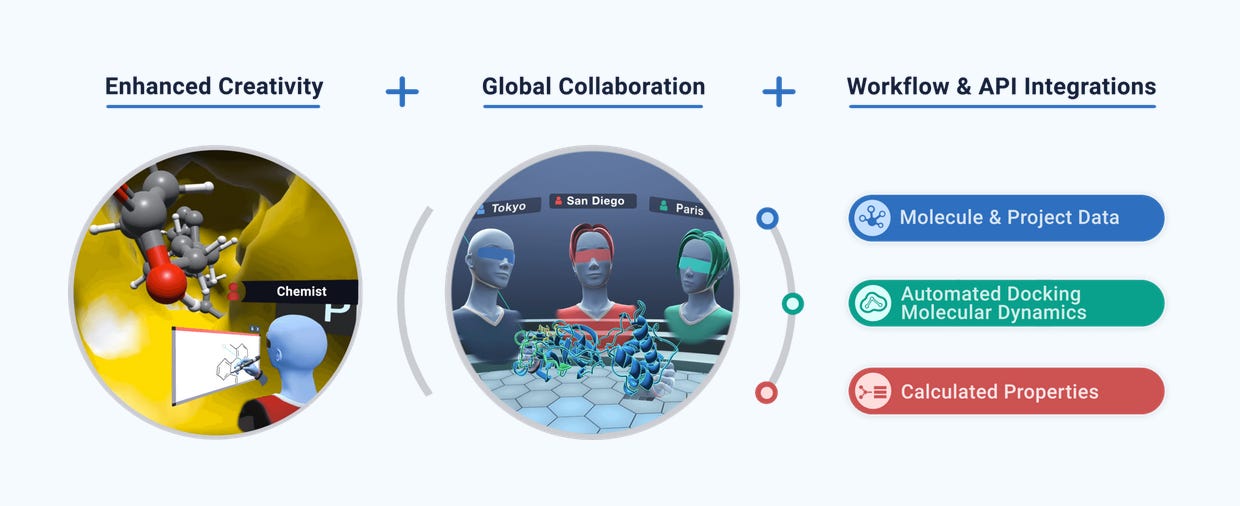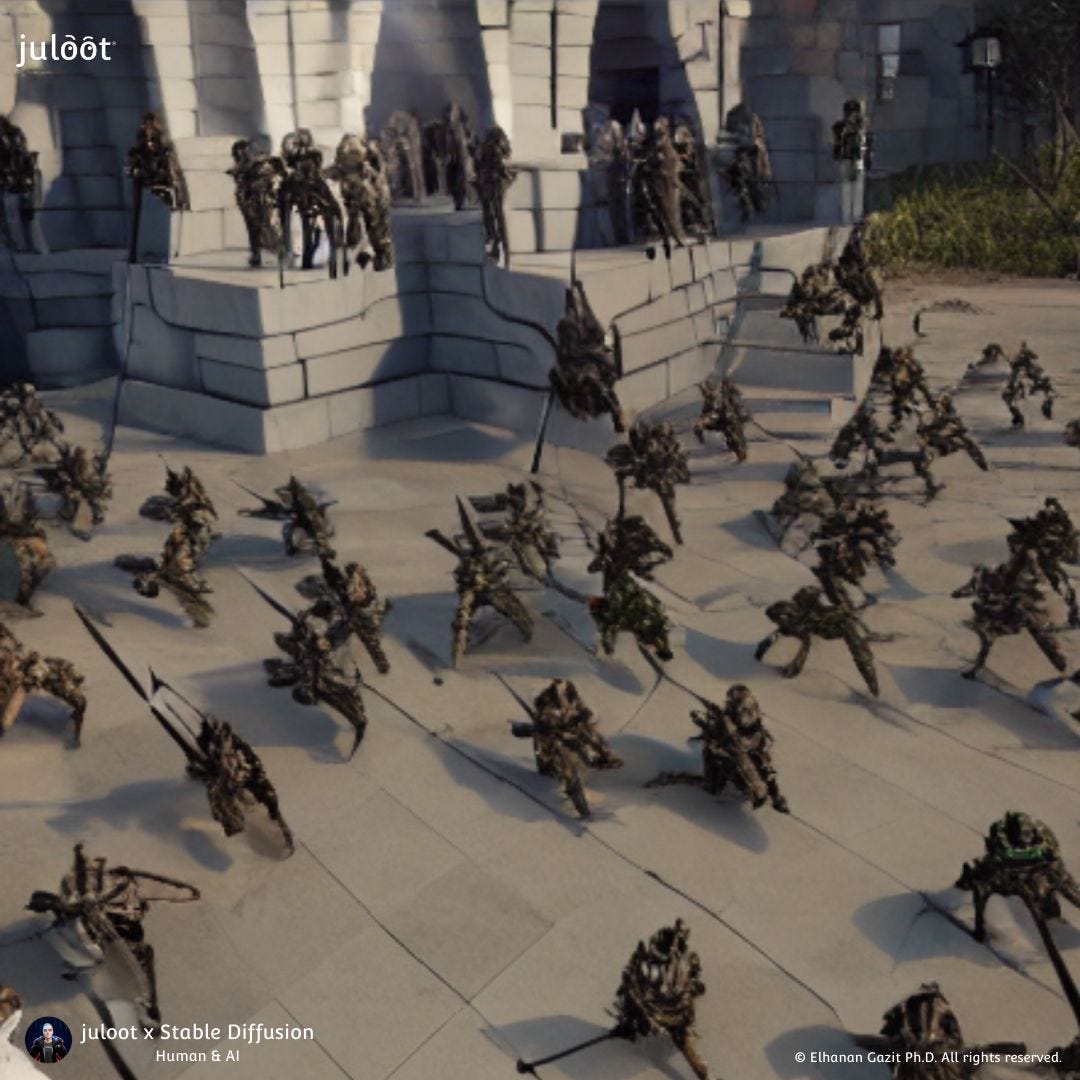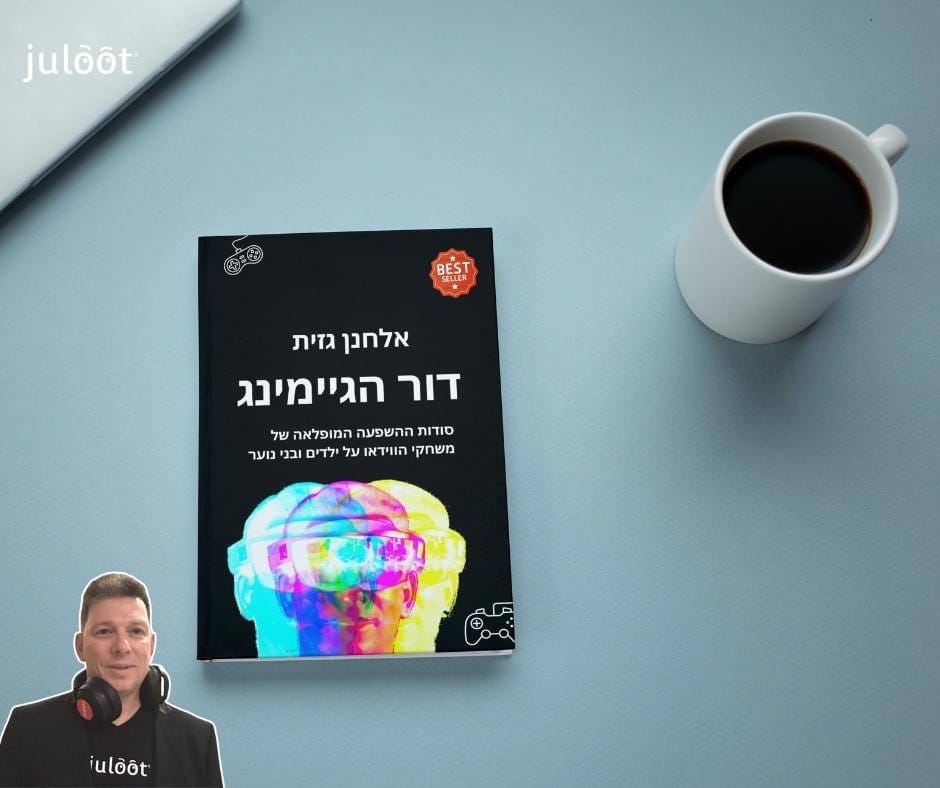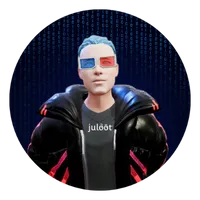How Marine biologist Dr. Erika Woolsey uses Virtual Reality to inspire Ocean empathy
MetaYeda #7 Three things I've learned about the disruptive future of the Metaverse w/ Founder @ juloot, @ MetaYeda, @ YedaVerse
1# How Marine biologist Dr. Erika Woolsey uses Virtual Reality to inspire Ocean empathy? [VR, Immersive Learning]
Marine Biologist Dr. Erika Woolsey. uses Meta Quest to lead VR dives with people worldwide. These guided immersive experiences are a critical educational component of The Hydrous, a nonprofit organization she Co-Foundered.
The Hydrous is a nonprofit organization on a mission to inspire ocean empathy and marine stewardship.
The Hydrous main goal is to make the ocean accessible so everyone can explore, understand, and engage with this tremendous yet fragile ecosystem.
How do you define immersion?
I had the honor and pleasure of learning from Prof. Chris Dede, one of the world's leading immersive learning researchers. As a visiting scholar at the Graduate School of Education at Harvard University (HGSE) in 2002, I presented my Work-in-Progress Doctorate, which focused on analyzing the learning dynamics within 3D virtual reality environments that represent complex astrophysics concepts1.
Immersion is the subjective impression that one is participating in a comprehensive, realistic experience. -Prof. Chris Dede2. HGSE.
Dr. Erika Woolsey's Hydrous project highlights the enormous potential of immersive learning. Great minds think alike.
🎮🥽🐬 Enter The Ocean Heroes — a 3D virtual reality game development project for Education.
The game's primary goal is to raise awareness among children and teenagers about the Oceans' pollution problems. The VR diving simulation game is my original concept. More info here
The player 'dives' into a 3D virtual ocean and uses HMD glasses and controllers to fight the polluting enemies. In addition, the player has to complete rescue missions for underwater creatures and clean the sea of plastic debris. It is an immersive game-based learning experience for teens.
The game includes artificial intelligence (AI) modules that simulate the movement of living creatures. In addition, an A.I bot AGENT module embedded in a virtual dolphin serves as the player's guide in the various missions in the game.
My Take:
Virtual Reality and Gaming technologies can scale up immersive scientific experiences and make them accessible to the masses.
Indeed, the future of Education is bright, but more than immersive technologies are needed to change the Educational system. We got a lot of work to do.
2# How researchers are using Meta Quest Pro app Nanome to solve the pandemic? [VR]
Nanome.ai is a Virtual Reality platform for Drug Design and Molecular Visualization.
Nicholas Sutrich spent time with the Nanome's team and got the story. Nanomes is a VR app on the Quest 2 and Meta Quest Pro that makes it "easy" for researchers to experiment with intricate molecules to make better pharmaceuticals. The researchers can get "inside" these models and manipulate them with their hands.
Nanome is sort of what happens when you mix together Tiltbrush and Minecraft.
Source: Nicholas Sutrich for Android Central.

My Take:
We can use innovative and disruptive technologies to improve the world. The Nanome VR app for researchers is like the Foldit crowdsourcing computer game for Citizen scientists. Both have tremendous contributions to the Human race's future.
3# Video Games are Culture, not Cults. [GAMING]
Futurist Noah Raford argues that as more and more people are drawn into gaming and virtual worlds, the communities they forge are spawning real-world social movements. However, in his Ted Talk 'How gaming can be a force for good.' he warns us that:
First you're a player, then you're a fan, soon you're in a clan, and before you know it, you're invading the Capitol. - Noah Raford (TED Talk, 2022).
My Take:
NO. Video Games are Culture, not Cults.
Gamers and Superfans create communities.
4# AR game Art project of the week
Yu-Gi-Oh! Superfan SuperZouloux's augmented reality setup displays u-Gi-Oh! cards monsters in 3D.
Credit: SuperZouloux YouTube Channel
After seven months of building, testing, and tinkering, French Yu-Gi-Oh! Superfan SuperZouloux has built a one-of-a-kind Augmented Reality board Game and multi-camera setup. Now he can do a live-streaming broadcast in which 3D versions of his monsters come to life as he plays his cards. Source: Luke Plunkett for Kotaku.
5# Why do we love playing video games so much? How do video games affect children's brains and behavior?
More than a decade ago, my young children's love of digital games ignited a vast curiosity about the gaming medium's power.
In those days, talking about Metaverse sounded like Chinese to most people. Now comes the natural continuation of this. I intend to write about the incredible impact of video games and Metaverse on children and teenagers [in Hebrew].
I"m writing about the secrets of the gaming medium impact I discovered at the international writing challenge (NaNoWriMo) that started on November 1, 2022.
I will write 50,000 words over the next thirty days. I will do it under the guidance of the wonderful Osnat Goaz in her excellent course 'How to write a book in 30 days'.
In order to meet the NaNoWriMo challenge, the next MetaYeda Weekly edition will be published next month.
Got a fantastic and relevant project you'd like to be featured on juloot's MetaYeda's Metaverse Think-Tank subsequent editions? Ping me via LinkedIn.
I'll see you in the Metaverse. GameOn!
🕹Elhanan Gazit, Ph.D., is a Gaming and Metaverse Strategist, Advisor, Entrepreneur, Investor, Speaker, Lecturer, Video Games Scholar // Founder @ juloot, @MetaYeda, @YedaVerse, Ex-Founder and CEO @ MetaverSense Ltd. Let's connect: https://linktr.ee/VRider
Gazit, E., Yair, Y., & Chen, D. (2006). The gain and pain in taking the pilot seat: Learning dynamics in a non-immersive virtual solar system, Virtual Reality, 10 (3-4), 271-282. https://doi.org/10.1007/s10055-006-0053-3
Dede, C. (2009). Immersive interfaces for engagement and learning. science, 323 (5910), 66-69. https://doi.org/10.1126/science.1167311





